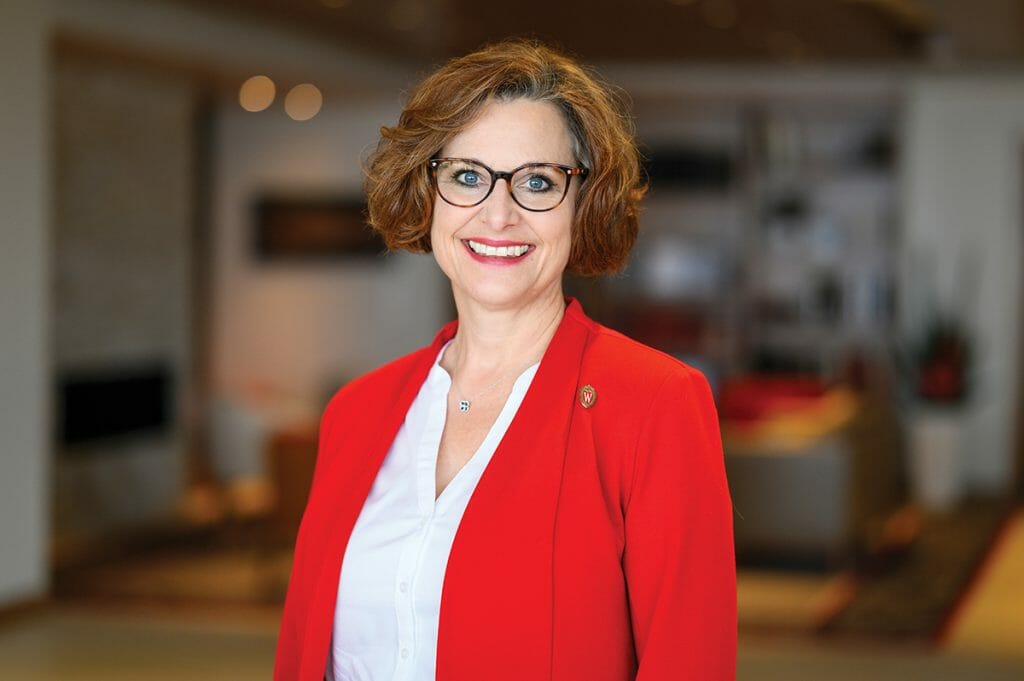
Schutt: “We’re going to need to maintain some sort of mechanism to keep people feeling connected emotionally and sharing common experiences.” Althea Dotzour
Given that the theme for this issue is the future, we asked Sarah Schutt, chief alumni officer and executive director for the Wisconsin Alumni Association (WAA), what she thinks the years ahead hold for WAA and for alumni associations in general.
Schutt believes that such organizations will continue to be important — and perhaps even increasingly important — because they are communities.
“No matter how much technology we develop,” she says, “people are still social creatures, and at their core, they feel a sense of connection to other people. We’re going to need to maintain some sort of mechanism to keep people feeling connected emotionally and sharing common experiences.”
Prior to the COVID-19 pandemic, Schutt says, alumni associations were spending a lot of time redefining and justifying their purpose. “The pandemic really illuminated the need for personal connection and the importance of alumni associations providing that for universities. So we got to take [the connection issue] off the table, and now we can turn our attention to figuring out how to be nimble and flexible in changing conditions.”
Schutt imagines that we’ll see a continuing “melt” of geographic boundaries. This is already occurring in the wake of the pandemic as more international alumni are participating in WAA’s virtual events on a regular basis. She also anticipates that the organization will expand its travel offerings. New forms of energy, she predicts, will make travel easier and less expensive, as well as less harmful to the environment.
Schutt expects that the coming decades will bring “channels and tools and ideas and experiences that we can’t even imagine right now,” but that as long as alumni associations listen to what their constituents want, they can adapt to these new technologies. “The core and the purpose of what we do is not going to change, but how we do it will,” she says.
Published in the Spring 2023 issue



Comments
No comments posted yet.